BMW X1 vs Toyota RAV4 – Differences & Prices Compared
Compare performance, trunk space, efficiency, and price at a glance.
Find out now which car suits you better – the BMW X1 or the Toyota RAV4?
The BMW X1 (SUV) comes with a Gasoline engine and Automatic transmission. In comparison, the Toyota RAV4 (SUV) features a Gasoline or Hybrid engine and Automatic transmission.
If you're looking for more power, decide whether the 312 HP of the BMW X1 or the 219 HP of the Toyota RAV4 better fits your needs.
The BMW X1 offers a fuel efficiency of 23 mpg, compared to 41 mpg for the Toyota RAV4.
Price-wise, the BMW X1 starts at 41400 $, while the Toyota RAV4 is available from 28700 $. Compare all details and see which model fits your lifestyle best!
In a showdown between the BMW X1 and the Toyota RAV4, the X1 stands out with its premium feel, agile handling, and superior driving dynamics, reflecting its luxury badge. Meanwhile, the Toyota RAV4 impresses with its practicality, offering ample cargo space and exceptional fuel efficiency, making it an ideal choice for family-oriented trips. Both models cater to different priorities, offering unique strengths in their respective segments – luxury and performance for the X1, versus reliability and utility for the RAV4.
BMW X1
The BMW X1 stands out in the compact luxury SUV segment with its impressive balance of style and practicality. This vehicle offers an upscale interior and advanced technology features, making it a favored choice for those seeking both comfort and innovation. Its nimble handling and efficient powertrain provide a dynamic driving experience, appealing to urban commuters and adventure seekers alike.
details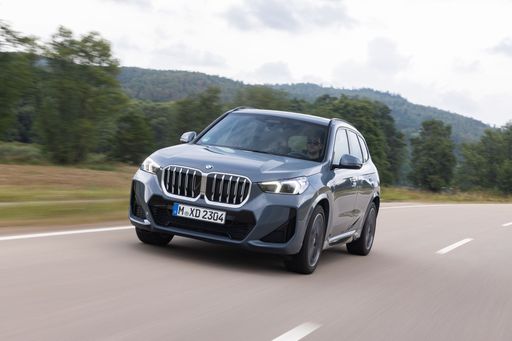 @ press.bmwgroup.com
@ press.bmwgroup.com
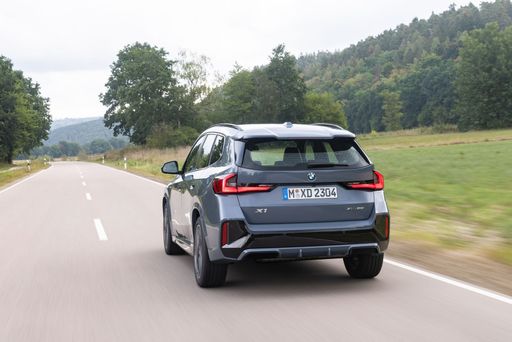 @ press.bmwgroup.com
@ press.bmwgroup.com
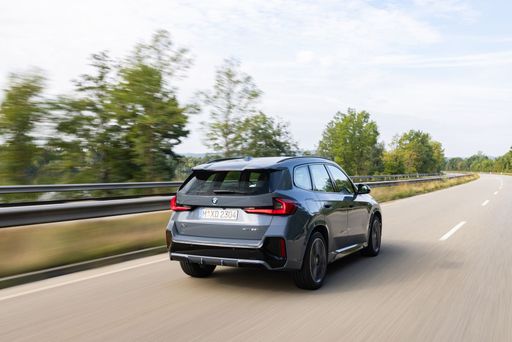 @ press.bmwgroup.com
@ press.bmwgroup.com
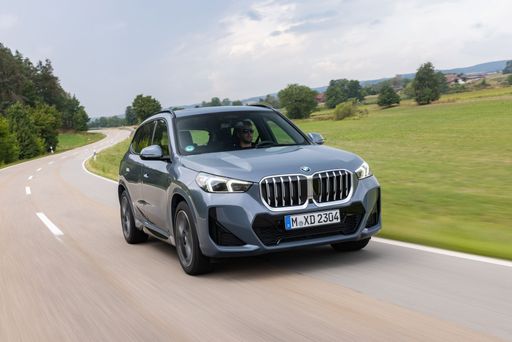 @ press.bmwgroup.com
@ press.bmwgroup.com
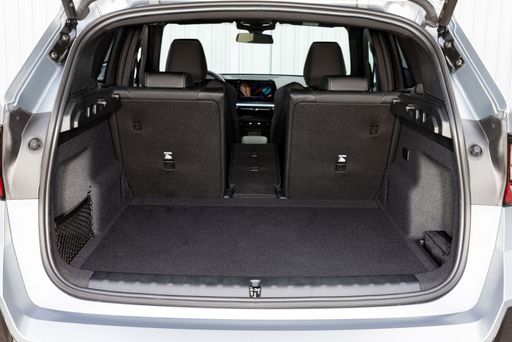 @ press.bmwgroup.com
@ press.bmwgroup.com
Toyota RAV4
The Toyota RAV4 is a versatile and popular compact SUV, known for its reliability and strong performance in various driving conditions. Its spacious interior and modern design cater to both family-oriented drivers and adventure seekers. With advanced safety features and impressive fuel efficiency, the RAV4 continues to be a leader in its segment.
details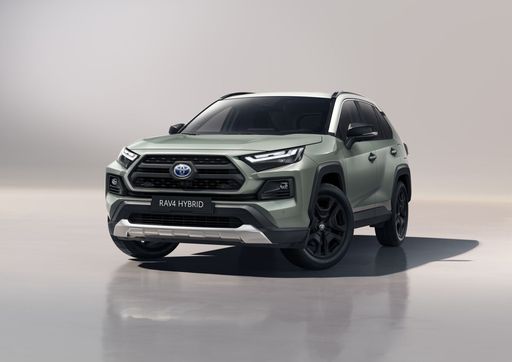 @ Toyota
@ Toyota
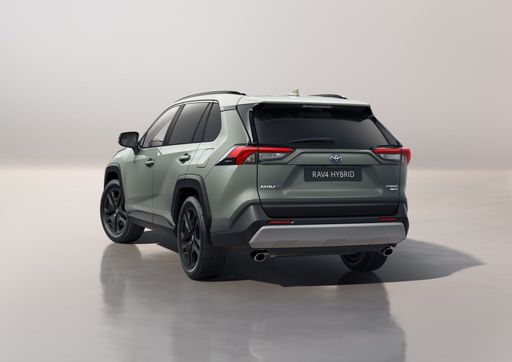 @ Toyota
@ Toyota
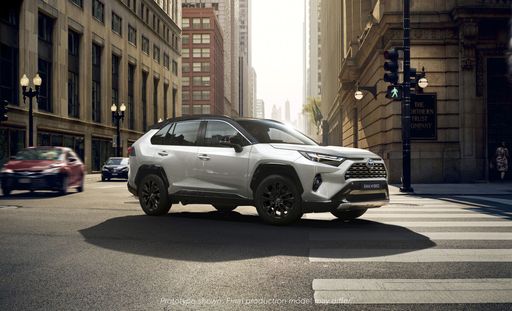 @ Toyota
@ Toyota
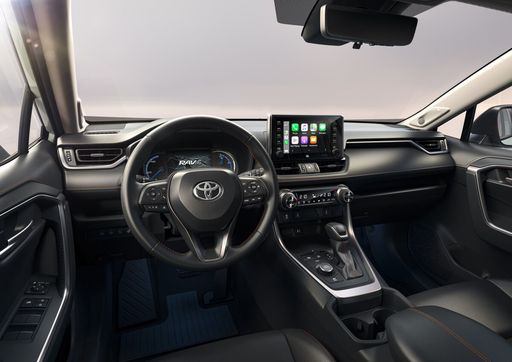 @ Toyota
@ Toyota
The BMW X1 and Toyota RAV4: A Battle of Titans in the Compact SUV Arena
In the ever-competitive compact SUV market, the BMW X1 and the Toyota RAV4 stand out as strong contenders, each bringing its distinct blend of luxury, performance, and practicality to the table. Both vehicles have garnered a reputation for reliability and innovation, but how do they truly stack up against one another? Let’s delve into the details and find out.
Performance and Efficiency
The BMW X1 takes pride in offering a robust driving experience with its 2025 model. It features an all-wheel-drive system powered by a 2-liter gasoline engine that delivers a noteworthy 241 to 312 horsepower and 295 lb-ft of torque. When it comes to efficiency, the X1 achieves a respectable fuel economy of 23 mpg in the city and 31 mpg on the highway, supported by its 14.3-gallon fuel tank capacity.
On the other hand, the Toyota RAV4 provides flexibility in drivetrain configurations with both front-wheel and all-wheel options available for its 2024 model. Its gasoline engine generates 203 horsepower and 184 lb-ft of torque, while the hybrid variant offers up to 219 horsepower. Notably, the hybrid RAV4 boasts exceptional fuel efficiency, with figures reaching 41 mpg in the city and 38 mpg on the highway, depending on the specific model and drivetrain.
Design and Dimensions
Both SUVs share a similar approach to design but differ slightly in dimensions. The BMW X1 is sleek and compact, measuring 177.4 inches in length, 72.6 inches in width, and 64 inches in height. Its curb weight ranges from 3750 to 3790 lbs, striking a balance between agility and stability.
In comparison, the Toyota RAV4 features a slightly larger frame, measuring between 180.9 and 181.5 inches in length, 73 to 73.4 inches in width, and 67 to 68 inches in height. It has a curb weight varying from 3370 to 3800 lbs, reflecting its capability to carry a bit more heft, particularly in its hybrid models.
Spaciousness and Comfort
Inside, both vehicles accommodate five passengers comfortably, ensuring a pleasant ride experience. The BMW X1 focuses on delivering a premium ambiance with high-quality materials and cutting-edge technology, characteristic of the brand's luxury heritage.
The Toyota RAV4, while equally comfortable, leans towards a more practical and versatile interior design, offering ample cargo space and features aimed at family-friendly utility. Its hybrid model caters to environmentally-conscious consumers seeking both performance and eco-friendliness.
Technological Innovations
BMW’s X1 excels in integrating the latest technology within its cabin, providing advanced driver-assistance systems, an intuitive infotainment interface, and seamless connectivity options. The focus is on delivering a premium, tech-forward experience expected of a luxury brand.
Toyota, known for its reliability, doesn’t fall short in the tech department. The RAV4 comes equipped with a suite of modern features, including user-friendly infotainment systems and Toyota’s Safety Sense package, which enhances the overall driving safety peacefully.
Conclusion: A Matter of Preference
Choosing between the BMW X1 and Toyota RAV4 largely depends on the buyer's priorities. If you seek a luxury experience with a spirited driving performance, the BMW X1 is hard to ignore. Conversely, if you’re after versatility, eco-friendly options, and practicality, the Toyota RAV4 stands out, especially with its impressive hybrid variant.
Ultimately, both models encapsulate what drivers seek in a compact SUV, each imprinting its unique characteristics within the market. Whatever your preference, both the BMW X1 and Toyota RAV4 are worthy of consideration for anyone looking to drive in style and comfort.

|

|
|
|
|
Costs and Consumption |
|
|---|---|
|
Price
41400 - 50800 $
|
Price
28700 - 40000 $
|
|
FuelEconomy City
23 mpg
|
FuelEconomy City
25 - 41 mpg
|
|
FuelEconomy Hwy
31 MPG
|
FuelEconomy Hwy
32 - 38 MPG
|
|
Electric Range
-
|
Electric Range
-
|
|
Battery Capacity
-
|
Battery Capacity
-
|
|
Fuel tank capacity
14.30 gal
|
Fuel tank capacity
14.50 gal
|
Dimensions and Body |
|
|---|---|
|
Body Type
SUV
|
Body Type
SUV
|
|
Seats
5
|
Seats
5
|
|
Doors
-
|
Doors
-
|
|
Curb weight
3750 - 3790 lbs
|
Curb weight
3370 - 3800 lbs
|
|
Trunk Volume
-
|
Trunk Volume
-
|
|
Length
177.2 - 177.4 in.
|
Length
180.9 - 181.5 in.
|
|
Width
72.60 in.
|
Width
73 - 73.4 in.
|
|
Height
64 in.
|
Height
67 - 68 in.
|
Engine and Performance |
|
|---|---|
|
Engine Type
Gasoline
|
Engine Type
Gasoline, Hybrid
|
|
Transmission
Automatic
|
Transmission
Automatic
|
|
Drive Type
All Wheel
|
Drive Type
Front Wheel, All Wheel
|
|
Power HP
241 - 312 HP
|
Power HP
203 - 219 HP
|
|
Torque
295 lb-ft
|
Torque
163 - 184 lb-ft
|
|
Number of Cylinders
-
|
Number of Cylinders
-
|
|
Engine Displacement
2 L
|
Engine Displacement
2.50 L
|
|
Gears
-
|
Gears
-
|
General |
|
|---|---|
|
Model Year
2025
|
Model Year
2024
|
|
Brand
BMW
|
Brand
Toyota
|
BMW X1
Exploring the 2025 BMW X1: The Evolution Continues
The 2025 BMW X1 solidifies its position as a leading choice in the luxury compact SUV segment, offering a compelling blend of style, technology, and performance. With dynamic enhancements, this iteration marks a significant evolution from its predecessors. Let's delve into the new features and technical specifications that define this latest version.
Performance That Impresses
Under the hood, the 2025 BMW X1 boasts two robust gasoline engine options, tailored to cater to different driving preferences. For those seeking maximum power, the 312 HP version provides an exhilarating drive, supported by a torque of 295 lb-ft. This powerhouse pairs with an automatic transmission system, ensuring smooth gear transitions and enhancing the all-wheel-drive experience.
For drivers preferring a slightly less aggressive yet efficient engine, the 241 HP version still delivers impressive acceleration and robust performance. Regardless of the engine choice, both versions feature a 2.0-liter engine displacement, optimizing fuel efficiency while maintaining a thrilling drive.
Efficiency That Counts
The BMW X1 does not compromise on fuel economy. With a city fuel economy rating of 23 mpg and a highway rating of 31 mpg, the SUV strikes an excellent balance between performance and efficiency. This allows drivers to enjoy longer journeys with fewer fuel stops, courtesy of a 14.3-gallon fuel tank capacity.
Design and Dimensions
In terms of design, the 2025 BMW X1 maintains its sleek and aerodynamic presence, measuring at a length of 177.4 inches, a width of 72.6 inches, and a height of 64 inches. The intelligently crafted dimensions contribute to its distinct road presence while optimizing interior space. Comfortably seating up to five passengers, the interior promises luxury and spaciousness in equal measure.
Innovative Features Enhance the Experience
BMW’s commitment to innovation is evident in the X1's advanced technology package. Drivers and passengers are treated to an array of smart features designed to enhance comfort, safety, and entertainment on every journey. From state-of-the-art infotainment systems to adaptive safety features, the 2025 BMW X1 ensures that every drive is enjoyable and secure.
Conclusion
The 2025 BMW X1 exemplifies modern SUV excellence, blending performance, efficiency, and advanced technology. Its refined design, coupled with powerful engine options, sets a new standard in its class. For discerning drivers seeking a compact luxury SUV that excels in both urban settings and open roads, the BMW X1 remains an outstanding choice.
Toyota RAV4
Unveiling the 2024 Toyota RAV4: A Leader in the SUV Segment
The 2024 Toyota RAV4 continues to set the benchmark in the highly competitive SUV segment, offering a blend of performance, innovation, and practicality. Known for its reliability and versatility, the RAV4 has been a favorite among drivers seeking a compact SUV with robust features and advanced technology.
Powertrain Options: Catering to All Needs
This year's RAV4 lineup presents a mix of gasoline and hybrid powertrains, offering options that cater to diverse driving preferences. The gasoline variants are equipped with a 2.5L engine producing a solid 203 horsepower, coupled with a smooth automatic transmission. For those inclined towards a more eco-friendly drive, the hybrid models provide an enhanced driving experience with a combined 219 horsepower.
Fuel efficiency is another strong point, with gasoline options providing an impressive city fuel economy of up to 27 mpg and a highway rating of up to 35 mpg. Hybrid variants excel even further, offering city mileage of up to 41 mpg and highway figures reaching 38 mpg.
Superior Drivability and Comfort
The Toyota RAV4 is designed with both front-wheel and all-wheel drive configurations, accommodating various driving conditions and preferences. With a curb weight ranging from 3,370 to 3,800 pounds, the RAV4 assures a stable and secure driving experience, whether you're navigating urban streets or heading off-road.
Inside, the RAV4 comfortably seats five passengers, offering ample space for all occupants. With dimensions measuring between 180.9 inches to 181.5 inches in length and up to 73.4 inches in width, the interior space is maximized for comfort without compromising the vehicle’s sleek exterior profile.
Innovative Features Packed in a Stylish Design
The 2024 Toyota RAV4 stands out with its modern styling and innovative features. It brings out the best in technology, with standard features and available upgrades that enhance entertainment, connectivity, and safety. The fuel tank capacity of 14.5 gallons ensures fewer stops for refueling, making it ideal for long trips or daily commutes.
Toyota’s commitment to safety continues in this model year, with a suite of advanced safety features that includes adaptive cruise control, lane departure warning, and a pre-collision system, making it a safe choice for families and adventurers alike.
Comprehensive Lineup and Editions
The RAV4 lineup includes various editions tailor-made for different lifestyles. From the urban-friendly LE and XLE front-wheel drives to the adventurous TRD Off Road and the eco-conscious Hybrid models, Toyota ensures that each variant is equipped to tackle specific driving demands.
In conclusion, the 2024 Toyota RAV4 exemplifies what a modern SUV should be: stylish, efficient, and packed with features that meet the needs of a diverse audience. It remains a top contender in its segment, appealing to traditional SUV lovers and new-generation drivers alike.
The prices and data displayed are estimates based on USA list prices and may vary by country. This information is not legally binding.
